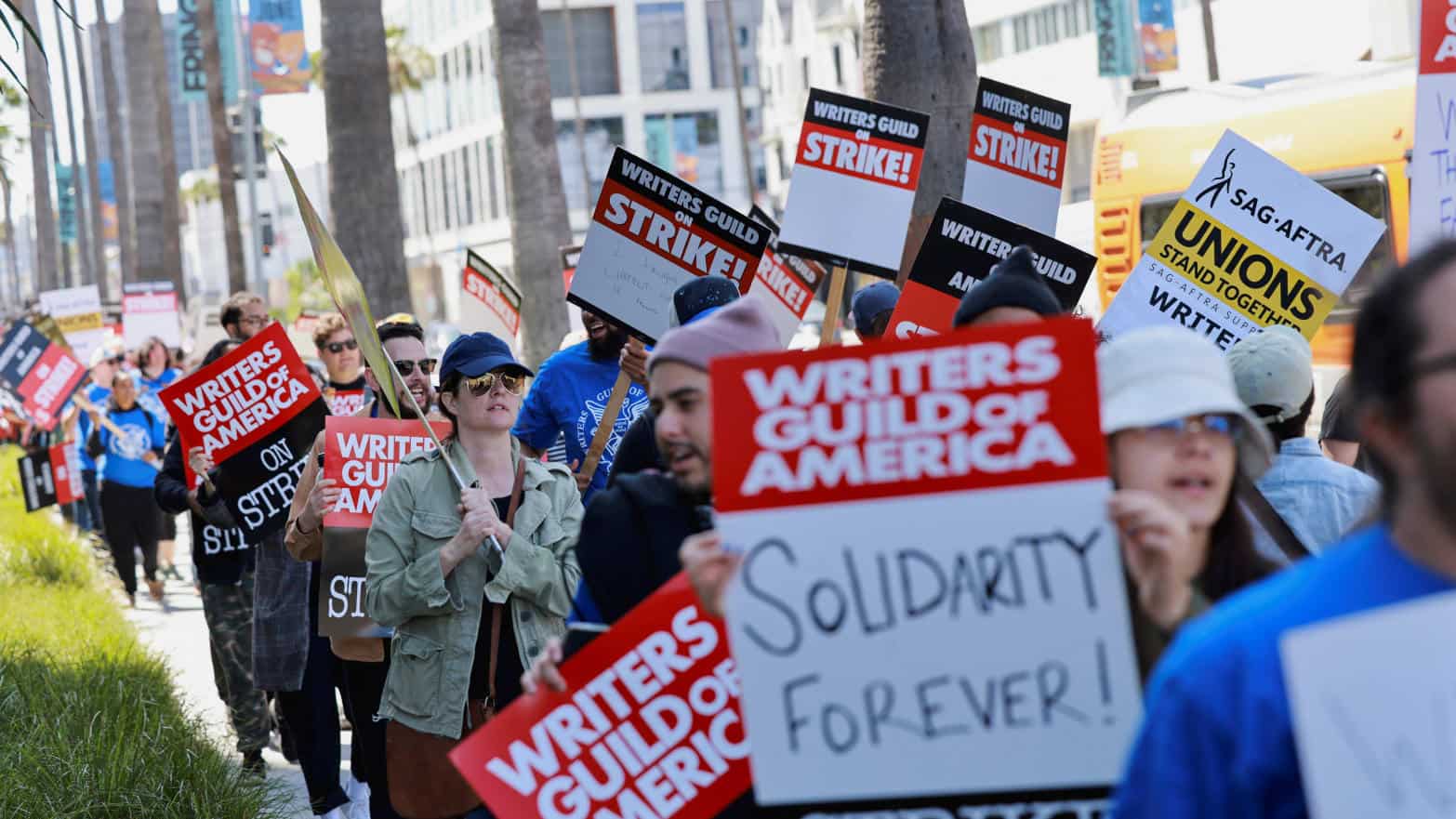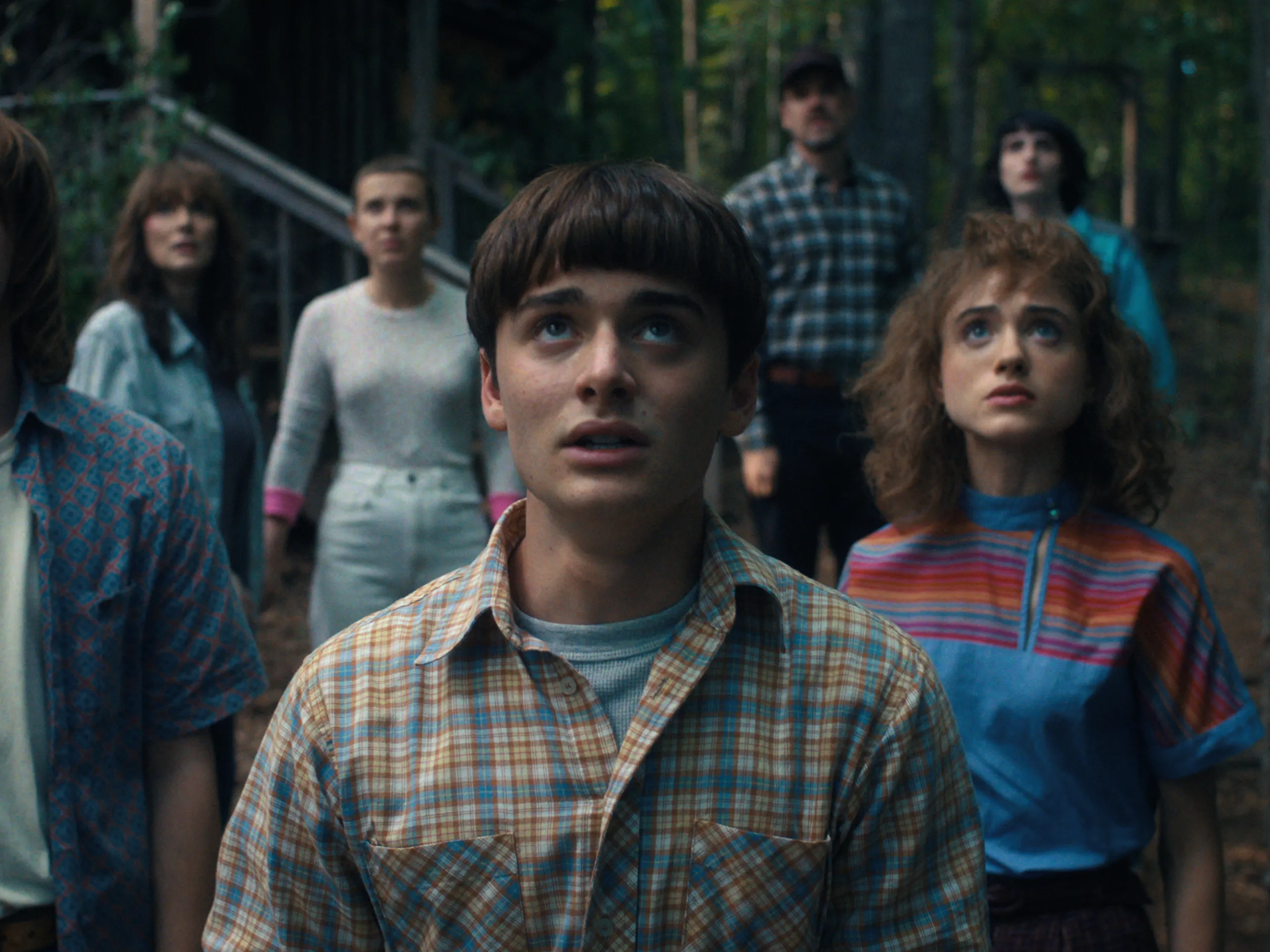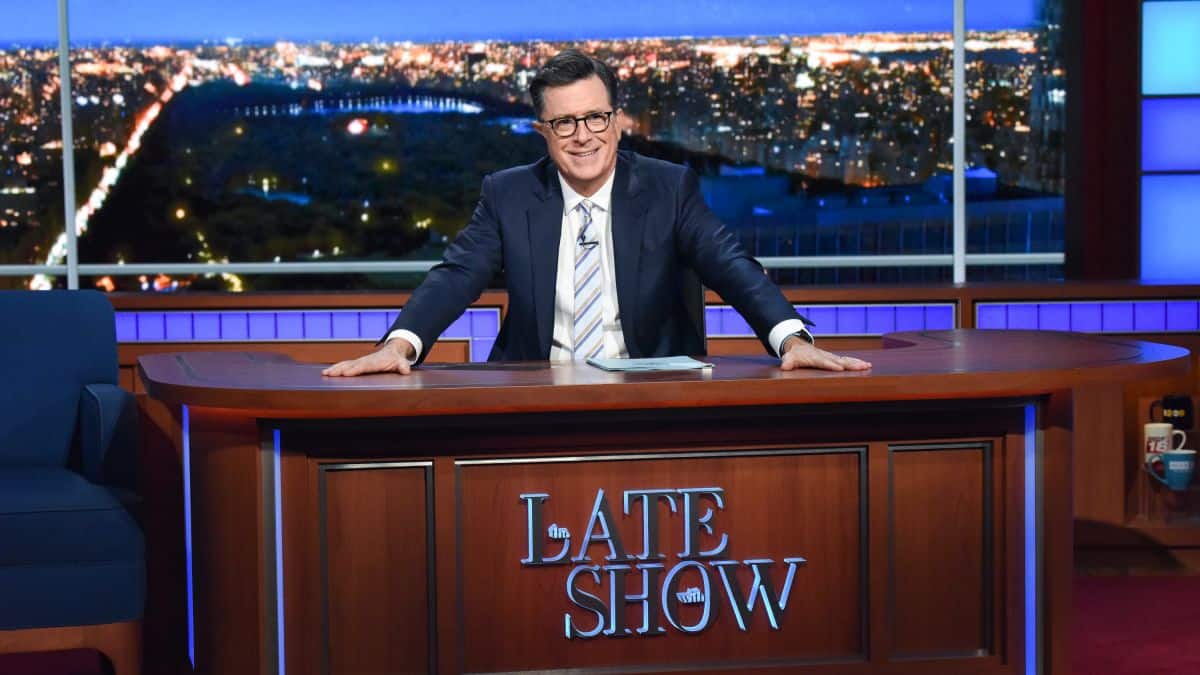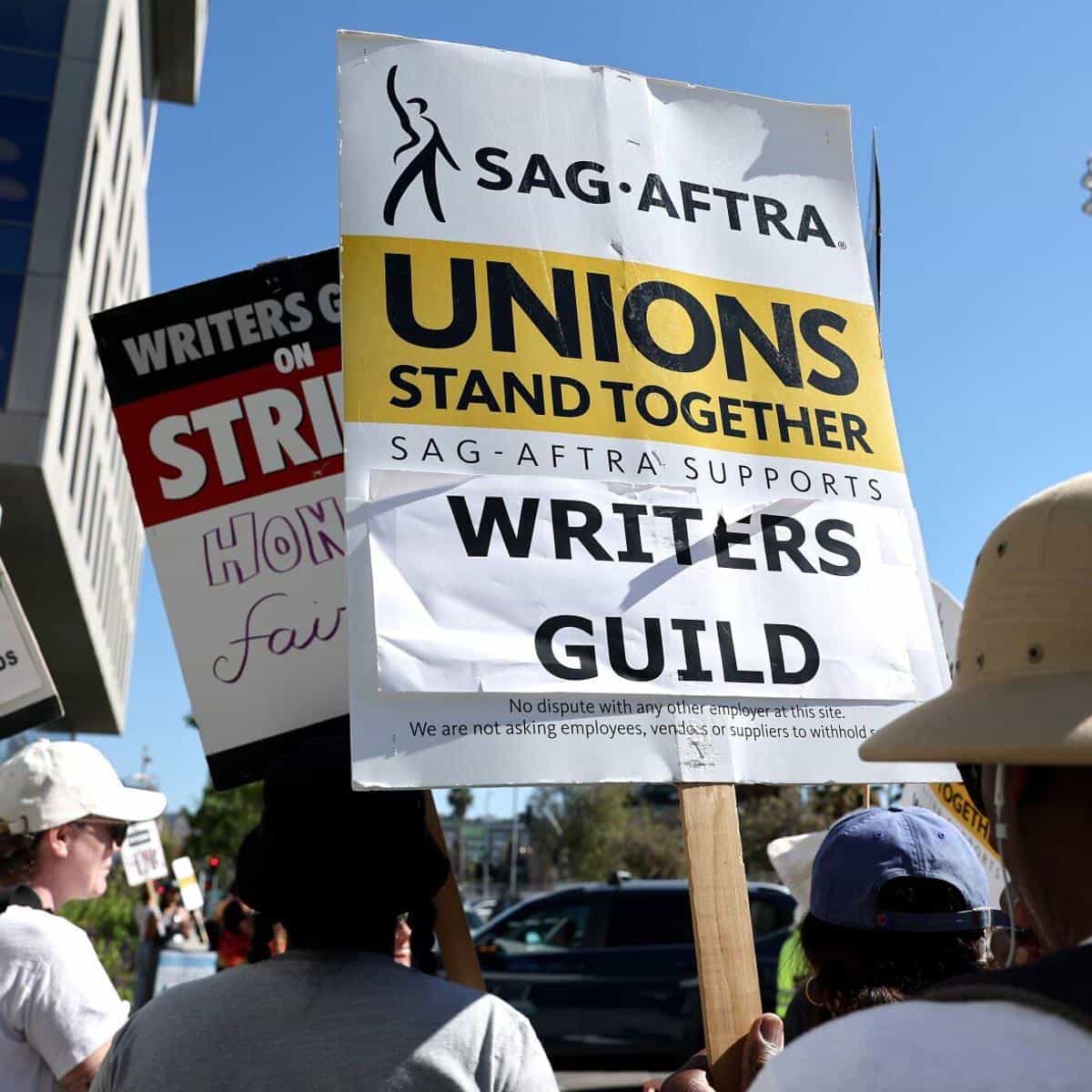The WGA Strike Ends and What That Means for Us
The WGA strike is now over, but what did they get, why is it important, and how does it impact us as viewers?

Spoiler Alert: This summary and review contains spoilers.
Additionally, some images and text may include affiliate links, meaning we may earn a commission or receive products if you make a purchase.
At the premiere of Disney’s “Haunted Mansion” in July, Disney’s theme park characters walked the red carpet as a replacement for the cast and creators that were on strike. Characters like Cruella De Vil and Maleficent strut across the premiere as SAG-AFTRA actors and WGA writers refuse to take part until they receive fair pay. While this scramble to promote “Haunted Mansion” was creative, it was also a sign that a major billion-dollar corporation was ready to stubbornly fight against its artists. This action was a glimpse into how film and television studios struggled to promote and create their projects, yet it was only the beginning of a long battle between writers, actors, and studio heads.
After 148 days on the picket line, writers will return to work today. Due to the strike recently ending, hope for Hollywood’s return looks brighter than ever. Yet with actors still on strike, what movies and TV shows are able to be put into production vastly differs. How the writer’s new deal and actors’ continued strike will affect entertainment has sent waves over Hollywood. Here’s how the WGA impacts the entertainment industry and you.
What’s Inside the New WGA Deal
The Writers Guild of America (WGA) reached a 3-year deal with entertainment studios that increased writers’ pay, staffing, and a guard against artificial intelligence.
Writers can now expect a 3.5–5% increase in salary and residual earnings. This is crucial because, about 20 years ago, reruns of shows resulted in payment checks for writers. Due to streaming businesses, shows like “Stranger Things” or “Bridgerton” simply stayed on the streaming platform, and there are technically no “reruns” despite viewers being able to watch their favorite shows over and over. Because of union negotiations, writers will now receive bonuses for popular shows and an increase in pay for the shows being watched. For a show with at least 13 episodes, writers will now get at least a six-person staff and ensure employment for 10 weeks for programs in development.

The WGA voted to end the strike, and members will vote on this deal as soon as next week. The writers are seeing their deal as a tremendous victory for screenwriting as a profession and the future of entertainment. For the first time in decades, Hollywood was at a standstill. But because actors are still on strike and the studios have begrudgingly accepted the writers’ demands, here is how it may impact audiences.
How the WGA Deal Impacts Entertainment and You
The Writers Guild of America (WGA) stated that writers can return to work as soon as today. TV programs like late-night talk shows (The Tonight Show with Jimmy Fallon, The Late Show with Stephen Colbert, etc.) and daytime talk shows (The View, The Kelly Clarkson Show, etc.) can immediately return. While these hosts and their shows may make new episodes, what’s unclear is who will be guests on these shows since actors are still striking. Talk shows may get creative by interviewing more athletes, musicians, authors, politicians, and more.

Pre-production on hit network-scripted shows like “Abbott Elementary” and writing on streaming shows like “Stranger Things” can also resume. Yet this may also create a strange dilemma for writers who also act on their shows. For example, Quinta Brunson writes and produces for “Abbott Elementary” but cannot currently act on the show. The result of writers returning without actors is that many scripts are ready for production as soon as actors strike a deal too.
Some film releases, like “Dune: Part 2,” have been pushed back to gain more momentum and hopefully promotion with actors once the actors’ strike ends. Other Hollywood tentpoles, like Marvel movies and shows like “Euphoria” and “Stranger Things,” cannot go into production without actors and have been delayed until next year and even 2025.

With writers and actors seeing a deserved pay increase, entertainment companies like Netflix are claiming that their budget remains the same, and viewers might see fewer shows and even an increase in subscription prices. For example, Netflix’s budget is $17 billion, but the streaming company’s claim is that while others are receiving higher pay, this takes away investment from potential new shows. They also claim a potential higher subscription cost to satisfy the higher writer and actor pay. While these claims are just speculation right now, these have been ways streaming companies have handled losses in the past.
Why the WGA and SAG-AFTRA Strike Are Important

How we consume our media has vastly changed in just the past 10 years. Entertainment can be found in the palm of your hand with just 1-minute videos. We need to make sure that people’s art and passion can still be sustainable careers. We want to live in a place that values what we make and encourages future generations and artists to create too.
The WGA’s deal is not only a win for labor movements but also for people who want to create and not compete with artificial intelligence. They have kept screenwriting and acting as a profession that can still pay the bills. Getting into Hollywood and making a career out of movies is hard, but the WGA and SAG-AFTRA strive to make the business a place where you can stay and still create the art you want.
Images used for editorial and commentary purposes. All rights remain with their respective copyright holders.


